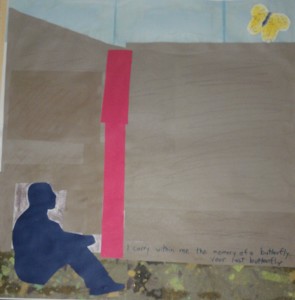the picturesque hills and green fields. This fortified town is called Terezin. During
World War II, the Nazis called the town Theresienstadt and converted it into a ghetto
and concentration camp. While the name of this camp is well-known, not too many
people realize Terezin was the site of a major Nazi deception.
The Nazis made a point to send leading Jewish intellectuals, artists, musicians and writers to this ghetto and allowed them to continue to compose, paint and create their works. Later, the Nazis used the creative life of the camp to their advantage, claiming the camp was a “model ghetto”, and they even developed a propaganda film calling Terezin “Hitler’s Gift to the Jews”.
The most terrible part of the deception was when the Nazis deported thousands of Jews to death camps, forced the remaining prisoners to clean up the ghetto, and had
the composers and actors among them entertain a delegation of Red
Cross representatives, who later claimed that the Jews in Terezin were well-treated. Whether the Red Cross delegates were really fooled is still up for debate, but what is known is that no further investigation was carried out. Of the 150,000 Jews sent to Terezin during the war, only about 17,000 survived.
This number included more than 15,000 children. While imprisoned in Terezin,
often encouraged by the artists and educators there, many of these children wrote
poems and stories, produced drawings and collages, and acted in performances. Tragically, less than 200 of these children survived the war.
One of the most famous surviving poems is called “The Butterfly” and was written by a twenty-three year old from Prague named Pavel Friedmann.

What else do we know about Pavel Friedmann? He was born in Prague on January 7, 1921, where he presumably lived until he was sent to Terezin in April 1942. He was later deported to Auschwitz, where he died on September 29, 1944. That is all we know, what has been gleaned from camp records.
In June, after being locked seven weeks in Terezin, Pavel wrote this poem. Maybe
he wrote other poems, but The Butterfly
is his only surviving legacy, all we have to remember him by.
But remember we must.
The story of the artists, the poets, the musicians who were imprisoned in Terezin has not been told often enough. Very few people I have spoken with are familiar with this
story, and it is essential that this story be shared and remembered in these days when
anti-Semitism is again on the rise.
More than ever it is essential that we remember the lesson of Terezin, that the human spirit is more resilient than many of us imagine, and that creativity, self-expression
and humanity can endure in the most terrible conditions.